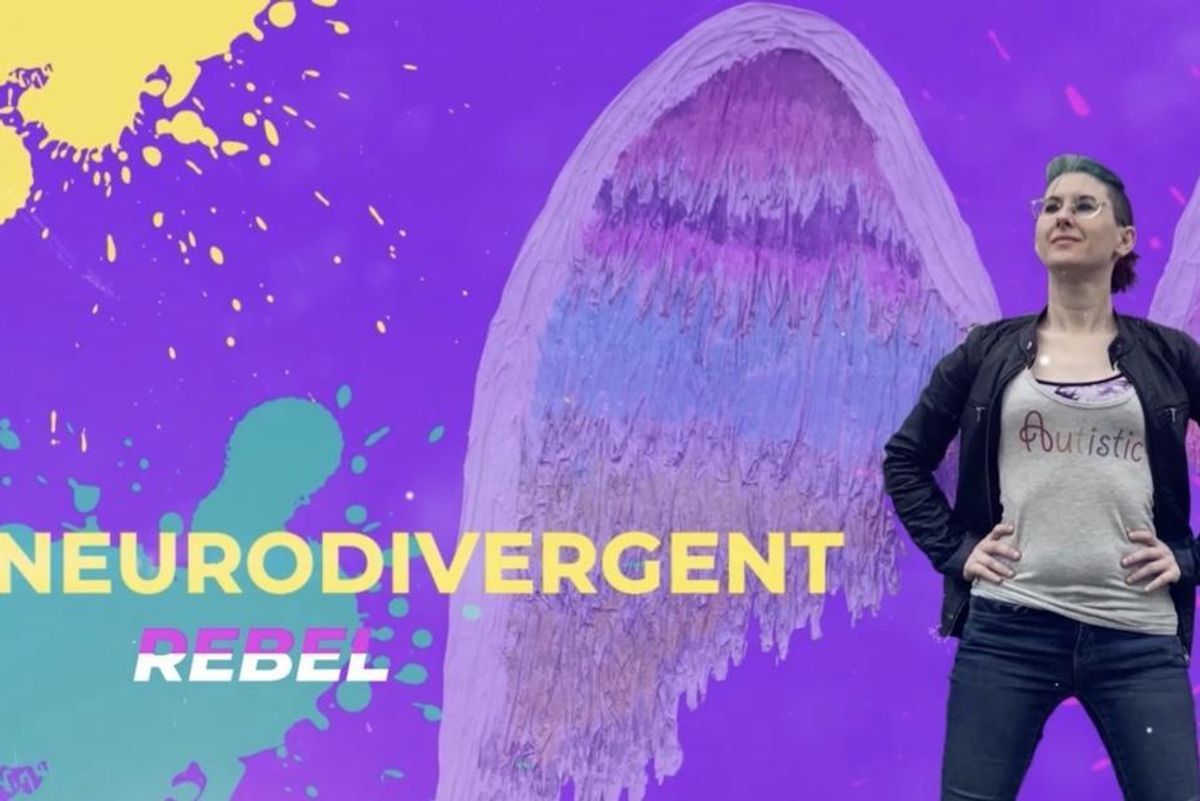
When Lyric Holmans was diagnosed Autistic at the age of 29, it was like they were born again. It fundamentally changed how Holmans saw themself and others, and it led to the important realization that they no longer had to live up to neurotypical expectations.
“Finally learning the truth allowed me to grow a skill that I’d been lacking for most of my life—self-compassion,” Holmans tells Upworthy. Adding that the diagnosis was like a “guidebook” that allowed them to “finally understand myself, and once I understood myself better, I even began to understand other humans—because I now understood how different people’s minds can be.”
This rebirth allowed Holmans to create a blog and social media profiles under the moniker NeuroDivergent Rebel. As the NeuroDivergent Rebel, Holmans elevates neurologically atypical voices to broaden the conversation surrounding neurodiversity.
The NeuroDivergent Rebel has nearly 88,000 followers on Facebook and 34,000 on Instagram.
One of the NeuroDivergent Rebel’s primary focuses is letting the public know that no one should attempt to turn neurodivergent people into neurotypical people.
“We know that treating people like they are inferior or destined for failure can push them into that self-fulfilling prophecy of not believing in their own abilities,” they told Upworthy. “Neurodivergent people, like all people, need to believe in themselves. We also need society to stop asking us to be all the things we’re not.”
Holmans wants neurodivergent people to take off their “masks” and to be themselves instead of contorting their minds and bodies in an attempt to be indistinguishable from their neurotypical peers. They understand that “masking” is a form of self-protection but it can push people to the emotional and physical breaking point.
“For some of us, myself included, simply being yourself means standing out, which can be dangerous if you are around unsafe people or situations. For me, as an Autistic person, masking often means I am hiding my discomfort or confusion in a situation. I may also mimic neurotypical expressions, cues, and body language, or fake eye contact, because I know non-Autistic people sometimes feel you’re up to no good or lying if you won’t look them in the eye,” Holmans says.
As a leading neurodivergent voice on social media, Holmans has seen how platforms such as Facebook and Instagram are slowly changing the way people understand neurodiversity.
“Social media has given rise to neurodivergent voices. Once upon a time, even as recently as five years ago, when I was first diagnosed, it was very hard to find the words and voices of other neurodivergent adults,” Holmans says.
“If you went to Google or any other search engine and typed in ‘Autism’ or ‘ADHD’ you would only find stories and resources about children, from medical professionals and worried parents (who were also only finding the medical articles that tend to slant heavily towards the harder parts of the neurodivergent experience),” they continued.
“For those of us, like me, rediscovering ourselves late in life, neurodivergent adults were lost and alone with few resources aimed at helping us. Now we are finally seeing a bit more balance to the narrative, though things are still far from perfect, and we have a long way to go,” Holmans says.
Some of the most impactful posts they’ve made have helped parents understand their neurodivergent children.
Their posts are also a way for neurodivergent people to feel connected to others.
They also allow people to celebrate their differences.
And they’re advocating for changes to our classrooms and schools to create a more compassionate, inclusive space for neurodivergent students.
In the end, Holmans is all about helping people improve their understanding of themselves and others to build a more compassionate world. “If I am able to give my readers the gift I received, in learning about neurodiversity that I’m not a broken neurotypical person—and it empowers them to live their lives more boldly, I’ve won,” Holmans says.
